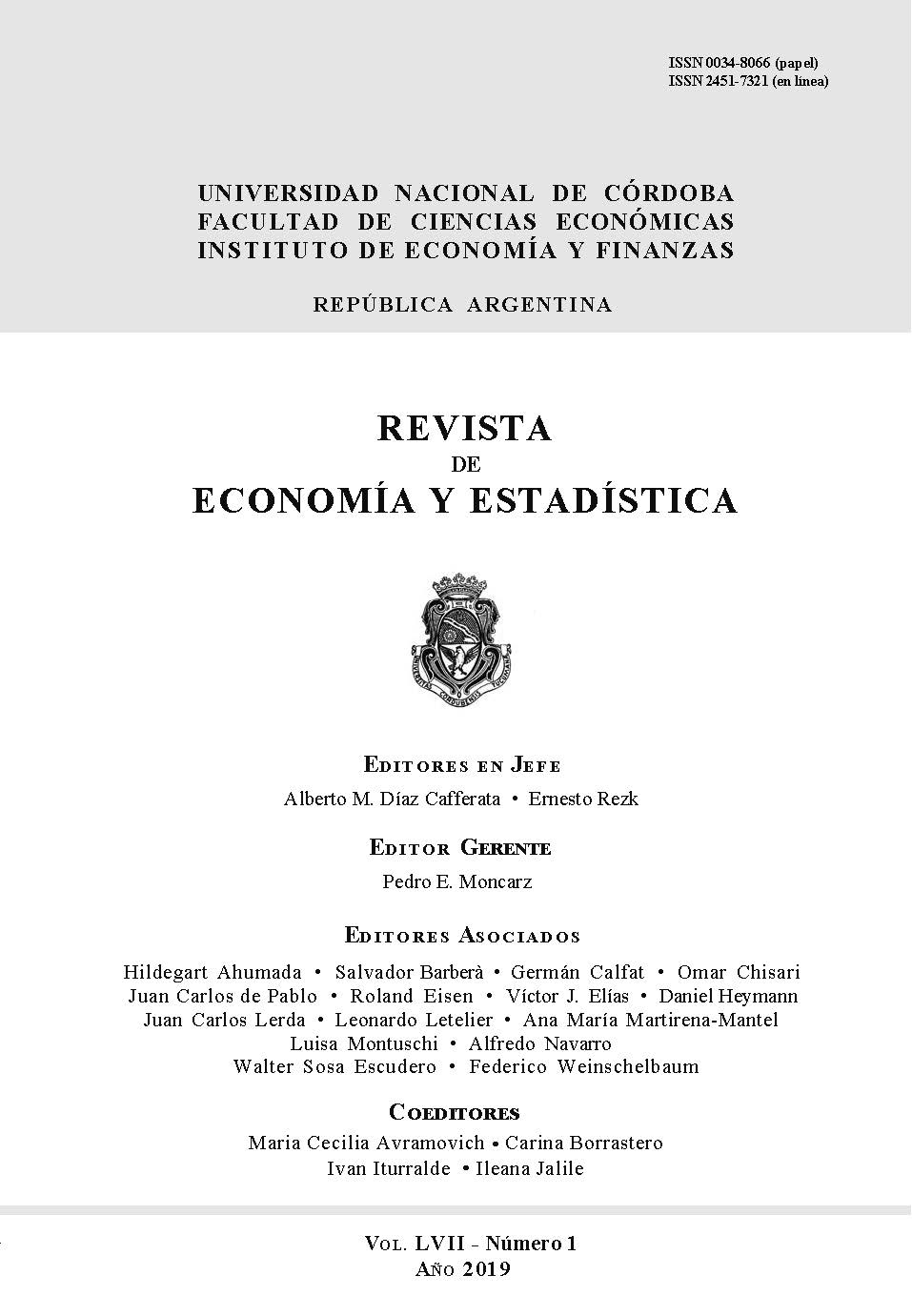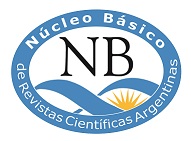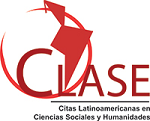Social and Environmental Accounting: Some Notes for its Inclusion in the University Education of Public Accountants
DOI:
https://doi.org/10.55444/2451.7321.2019.v57.n1.31310Keywords:
accounting, education, social and environmental accountingAbstract
Social and environmental accounting is the specific curricular content with which accountants are trained to be active participants in the fight for sustainable development. This work presents a review of the bibliography -is still scarce- related to education in social and environmental accounting, and establishes certain recommendations for the design of its teaching: that social and environmental accounting can be classified as a segment of accounting, that an interdisciplinary approach is carried out, and that an dialogical vision is adopted between the traditional and critical perspectives of accounting.
Date received: August 30, 2019
Acceptance date: November 16, 2019
Downloads
References
Bebbington, J., Russell, S., & Thomson, I. (2017). Accounting and sustainable development: Reflections and propositions. Critical Perspectives on Accounting, 48, 21-34.
Chapman, WL (1982). El consumidor como beneficiario social de la actividad empresaria. Anales de la Academia Nacional de Ciencias Económicas, 27, 39-64.
Comisión Nacional de Evaluación y Acreditación Universitaria - CONEAU (2017). Resolución 3.400: Contenidos Curriculares Básicos de la Carrera de Contador Público. Anexo 1. Argentina. https://www.coneau.gob.ar/archivos/resoluciones/anexo-res3400.pdf
Deegan, C. (2017). Twenty five years of social and environmental accounting research within Critical Perspectives of Accounting: Hits, misses and ways forward. Critical Perspectives on Accounting, 43, 65-87.
Dey, C. (2003). Corporate ‘silent’and ‘shadow’ social accounting. Social and Environmental Accountability Journal, 23 (2), 6-9.
Di Maggio, P. & Powell, W. (1983). The iron cage revisited: Institutional isomorphism and collective rationality in organizational fields. American Sociological Review, 48 (2), 147-160.
Eco, U. (1998). Cinco escritos morales. Lumen.
Eco, U., Gould, S. J., Carrière, J. C., & Delumeau, J. (1999). El fin de los tiempos. Anagrama.
European Accounting Association - EAA (2018, 31 mayo - 1 junio). European Accounting Conference [Abstract]. 41° Congreso Annual de la Asociación Europea de Contabilidad, Milán, Italia.
García Casella, C. (1997). Enfoque multiparadigmático de la Contabilidad: modelos, sistemas y prácticas deducibles para diversos contextos. Proyecto de Investigación de la UBA Buenos Aires, Editado por el Director del proyecto.
García Fronti, I. (2012). Problemas de la Contabilidad social y ambiental: Algunas reflexiones sobre la necesidad de un abordaje interdisciplinario. Contaduría Universidad de Antioquia, 60, 209-218.
Geba, N., Bifaretti, M., Sebastián, M., Longhi, P., Rovelli, P. y Pascuzzi Rey, A. (2019, 12 Diciembre). Contabilidad Social y Ambiental en Asignaturas Contables Obligatorias de la Carrera de Contador Público en Universidades Nacionales de Argentina [Presentación de Artículo]. 25° Encuentro Nacional de Investigadores del Área Contable – 15° Simposio Regional de Investigación Contable, La Plata, Argentina.
Gómez Villegas, M. (2004). Avances de la Contabilidad Medioambiental empresarial: evaluación y posturas críticas. Revista Internacional Legis de Contabilidad y Auditoría, 18, 87-119.
Gray, R. (2000). Current developments and trends in social and environmental auditing, reporting & attestation: a personal perspective. Draft 2B. University of Glasgow, United Kingdom.
Gray, R. (2010). A re-evaluation of social, environmental and sustainability accounting: An exploration of an emerging trans-disciplinary field? Sustainability Accounting, Management and Policy Journal, 1 (1), 11-32.
Gray, R. (2019). Sustainability Accounting and Education: Conflicts and Possibilities. In K. Amaeshi, J. N. Muthuri y C. Ogbechie (Eds.), Incorporating Sustainability in Management Education (pp. 33-54). Palgrave Macmillan.
Gray, R. & Perks, B. (1982). How desirable is social accounting? Accountancy (London), 93, 101-2.
Gray, R., Bebbington, J. & McPhail, K. (1994). Teaching ethics in accounting and the ethics of accounting teaching: educating for immorality and a possible case for social and environmental accounting education. Accounting Education, 3 (1), 51-75.
Gray, R., O’Dochartaigh, A. & Rannou C. (2016). Organizational Effectiveness and Social and Environmental Accounting: Through the Past Darkly. In J. Haslam, P. Sikka (Eds.), Pioneers of Critical Accounting. Palgrave Macmillan.
Guthrie, J. & Parker, L. (2011). Reflections and projections: 25 years of interdisciplinary perspectives on accounting, auditing and accountability research. Accounting, Auditing & Accountability Journal, 25 (1), 6-26.
Interdisciplinary Perspectives on Accounting Research Group - IPARG (2012). http://business.cf.ac.uk/interdisciplinary-perspectives-accounting-iparg
Islam, M. (2017). Future of Accounting Profession: Three Major Changes and Implications for Teaching and Research. Business Reporting, International Federation of Accountants (IFAC).
Lamberton, G. (2005). Sustainability accounting—a brief history and conceptual framework. Accounting forum, 29 (1), 7-26.
Larrinaga, C. (1999). Perspectivas alternativas de investigación en contabilidad: Una revisión. Serie Economía de la Empresa , Departamento de Economía de la Empresa, Universidad Carlos III de Madrid.
Laughlin, R. (1999). Critical accounting: Nature, progress and prognosis. Accounting Auditing & Accountability Journal, 12(1), 73-78.
Lee, W., Birkey, R. & Patten, D. (2017). Exposing Students to Environmental Sustainability in Accounting: An Analysis of Its Impacts in a US Setting. Social and Environmental Accountability Journal, 3 (2), 81-96.
Mathews, M. (1997). Twenty‐five years of social and environmental accounting research: Is there a silver jubilee to celebrate? Accounting, Auditing & Accountability Journal, 10 (4), 481-531.
Mattessich, R. (2002). Contabilidad y Métodos Analíticos. Medición y proyección del ingreso y la riqueza en la microeconomía y macroeconomí. La Ley.
Merchant, KA (2008). Why interdisciplinary accounting research tends not to impact most North American academic accountants. Critical Perspectives on Accounting, 19 (6), 901-908.
Milne, M. (2001). Commentary on: Some thoughts on social and environmental accounting education. Accounting Education, 10 (4), 369-374.
Milne, M. & Gray, R. (2013). W(h)ither Ecology? The Triple Bottom Line, The Global Reporting Initiative, and Corporate Sustainability Reporting. Journal of Business Ethics, 118, 13-29.
Parker, L. (2011). Twenty-one years of social and environmental accountability research: A coming of age. Accounting Forum, 35 (1), 1-10.
Rodríguez de Ramírez, M. C. (2008, 5-7 noviembre). Los programas de transferencias condicionadas como objeto de la contabilidad social. Su evolución en Argentina después de la crisis de 2001. IIIº Jornadas Universitarias de Contabilidad, Montevideo, Uruguay.
Roslender, R. & Dillard, JF (2003). Reflections on the interdisciplinary perspectives on accounting project. Critical Perspectives on Accounting, 14 (3), 325-351.
Solomon, A. & Lewis, L. (2002). Incentives and disincentives for corporate environmental disclosure. Business Strategy and the Environment, May/Jun, 154-169.
Sundin, H., & Wainwright, L. (2010). Approaches to integrating social and environmental accounting (SEA) into accounting majors in Australian universities. Social and Environmental Accountability Journal, 30 (2), 80-95.
Teixeira, LDC (2019). A Percepção da importância da educação ambiental na formação do profissional contábil: um estudo de caso na UFGD. http://repositorio.ufgd.edu.br/jspui/handle/prefix/2521.
Zulkifli, N. (2010). Social and environmental accounting education and sustainability: Educators' perspective. Journal of Social Sciences, 7 (1), 76-89.
Downloads
Published
Issue
Section
License
Copyright (c) 2019 Inés García Fronti

This work is licensed under a Creative Commons Attribution-NonCommercial-NoDerivatives 4.0 International License.
Authors who have publications with this journal agree to the following terms:
Authors retain their copyright and grant the journal the right of first publication of their work, which is simultaneously subject to the Creative Commons Attribution-NonCommercial-NoDerivatives 4.0 International License that allows third parties to share the work provided that its author and first publication in this journal are indicated.
Authors may adopt other non-exclusive licensing arrangements for distribution of the published version of the work (e.g. depositing it in an institutional telematic archive or publishing it in a monographic volume) as long as the initial publication in this journal is indicated.
Authors are allowed and encouraged to disseminate their work via the Internet (e.g. in institutional telematic archives or on their website) before and during the submission process, which can lead to interesting exchanges and increase citations of the published work. (See The Open Access Effect)










